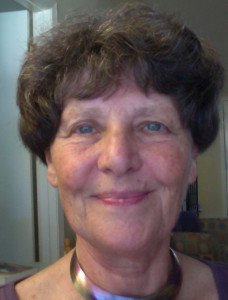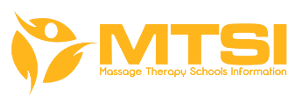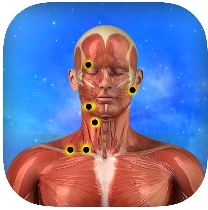
I opened the Reiki Center of Fairhope in 2012 offering classes and workshops as well as seeing private clients for sessions in energy healing and reflexology.
Reiki Center of Fairhope is located in Fairhope Alabama on Mobile Bay. The business has included several other private practice practitioners who also offer therapeutic massage, energy healing and reflexology.
Teaching monthly workshops in Quantum-Touch and Reiki offers many people a chance to learn skills to keep themselves healthy between their regular bodywork sessions. Also some of my classes offer massage therapists a chance to earn Continuing Education hours.
2. Tell us why you chose to go into massage and at what point in your life did you decide to do so? What were you doing at the time? Where did you first hear about the massage career? What factors influenced your decision? What were you looking to get out of this decision?
In 1986 I received my first massage and while enjoying myself I was thinking that I could DO this work! I spent several months researching what was involved and found out about Reflexology and purchased a how-to book. I taught myself how to do reflexology first because I was not sure I would really like doing bodywork. I then started a part time private practice doing reflexology in a state that did not require licensing.
My clients were quickly asking me to give them a massage. I enrolled at their request in a “couples massage” class that was offered and within 5 weeks I was giving my clients a massage. My instructor called me his star pupil! I was busy and happy, however I begin to feel that I needed more and moved to California to take a professional massage training course.
There they asked me why I was enrolled because I obviously already knew the profession. This was great support for my journey of self training.
3. What were some of your questions and concerns before further pursuing your massage therapy goals? Talk about concerns with school and the profession itself.
Since I was deeply involved in the profession BEFORE the National Certification Board was created, I was fortunate enough to be chosen to give my professional feedback about what should be on the first NCBTMB exam. I took the exam in 1994, the first year that it was offered and have paid close attention to the changes in the profession.
The most difficult question that has always plagued our profession is the close proximity to the prostitution industry. It has been a constant annoyance that most states that write massage therapy laws are actually writing laws regarding prostitution. The profession has not yet reached the public awareness to make it clearly about health care.
The increase in numbers of massage schools churning out massage therapists that have an abundance of hours of training but not really a clear picture for many on how to be professional is also something that is of concern.
I have had the opportunity to teach at massage schools and to write curriculum for a school. My ideal would be to create a school that focused on deep learning of body, mind, spirit healing rather than just spending hours in classes that just skimmed the surface of multiple modalities.
4. What is your specialty and what are the top three contributing factors to your success today?
My speciality is working with an individual using a variety of energy modalities and reflexology. I have developed a session I call “reflexation” that combines this and also teach it to others who are interested. First I think my passion for energy healing and reflexology make it a successful choice.
Second I have continued to learn more about my favorites to improve my skills. Third I am able to communicate what I do to my clients so they understand the benefits of the work.
5. What do you like about your specialty? What do you like about what you do in general as a career? Why?
I love my speciality because of its flexibility and the way that it can deeply relax the client. Most clients say that this combination therapy called Reflexation has helped them feel better than any massage they have received. This career in bodywork has given me the chance to listen to people and help them find a path to feeling better, which is very satisfying.
6. What do you not like about what you do? Why?
There isn’t anything I don’t like really, because I choose to do the modalities that I feel work for me and my clients.
7. If there were three things you could change about your work or the industry as a whole what would they be? Why would you change them? What would you change them to?
I think I answered this question within another questions context.
8. How long do you plan to practice and what do you plan to do after?
I have been fortunate to learn excellent body mechanics so that I expect I can work many more years doing what I love to do. Since I teach classes in all of my favorite modalities I will continue that as long as I can. I am already deep into my retirement time of life and don’t really see any need for changes in my path.
9. Do you currently have another job or business whether full time or part time? Tell us a bit more about it and how you are able to juggle that with your massage career?
At the beginning of my career in bodywork I worked in advertising and graphic design to maintain an adequate income. However for years now I have been able to work full time in my chosen profession.
10. What are some mistakes you made in your career pursuit that you’d like to warn other students about so they can learn from your experience and avoid it?
I cannot think of anything that has derailed my career. However I think I can say that what I have seen with other beginning practitioners in therapeutic massage is that they are impatient with how long it takes to get established in a practice and give up too soon. So be ready to hone your skills and share your talents with as many as you can through demonstrations and 10 minute samples to prospective clients.
11. What would you advice someone who is looking at massage therapy schools? What do you recommend they look for and how? How do you recommend they determine whether the school is the right one for them?
I believe that choosing a massage scho`ol that can give you a broad perspective focusing on the whole individual, not just a knowledge of the muscles is preferable. The best schools will have a program in place to teach you SELF care, so that you learn good body mechanics and keep your back, hands and arms in good health for as long as you want to practice. I have been in practice for over 20 years and have never lost the use of my hands because I went to a school that taught me self care.
12. What do you recommend for someone who wants to go to massage school but cannot afford it?
Check for student loans that many schools offer and learn about payment options the school offers for monthly payments. Do a part time schedule so you can work while going to school.
13. What are your three biggest points of advice for an aspiring massage therapist today? What should they do/not do? What should they think about and consider?
If you want to become a massage therapist you should LIKE working with people and have a flexible attitude. The nature of this profession gives you plenty of opportunity to see change since clients change your schedule quickly.
It would be ideal for any aspiring bodyworker to do plenty of research about the kinds of bodywork you can learn and pay to receive those treatments before enrolling in school.
14. Any open thoughts / comments – anything else that you’d like to share about yourself, the massage industry, profession, future, etc? If nothing, make one prediction for the future of massage?
The massage and bodywork industry has a big challenge to educate the public and the schools to enable a continuing future with qualified professionals serving their communities.
15. What is your passion outside of massage? What are your hobbies and interests which you pursue when you are not working? Tell us why you enjoy what you enjoy.
I enjoy photography, playing the Ukulele, remodeling projects, gardening when I am not helping others to regain their passionate healthy life.
Julie E. Brent is a Certified Reflexologist, Quantum-Touch Practitioner/Instructor, Reiki Master Teacher, Certified Interdimensional Healing Practitioner/Instructor and an Ordained Minister. You can find her on her website here.








Leave a Reply